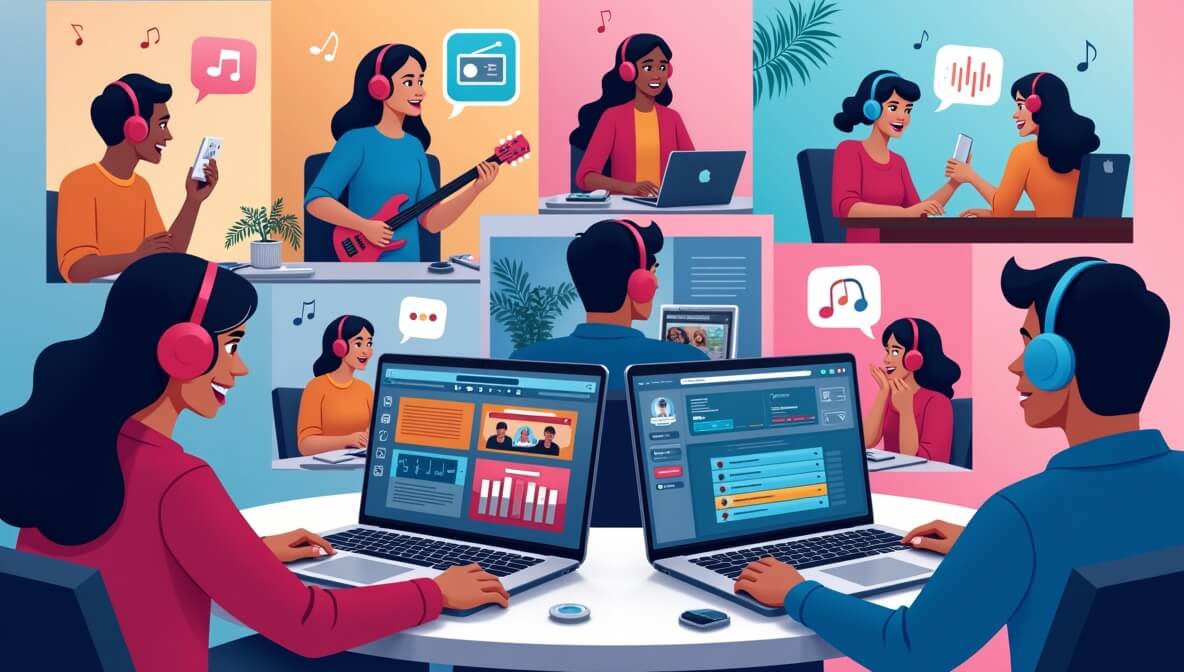August 12, 2025

In today’s music industry, community isn’t optional — it’s essential. Whether you're producing tracks in your bedroom studio, writing songs on the go, or preparing for your first EP release, connecting with other creatives online can accelerate your growth, improve your skills, and open unexpected doors.
The internet has replaced the rehearsal space as a key gathering point for musicians — and the right online community can be as important as your gear.
Online music communities are far more than forums to post your latest track. They're learning spaces, creative labs, support systems, and industry classrooms rolled into one.
Here’s what you can get out of them:
If you're serious about building your craft, online communities are where the conversations — and careers — begin.
Are you someone who loves tweaking presets, upgrading your home studio, or comparing mics? Then forums like Gearspace, KVR Audio, and Reddit’s r/WeAreTheMusicMakers are a goldmine.
These spaces go beyond surface-level talk. You’ll find:
It’s also a great place to learn how professional producers approach their mixes, and how they solve common technical problems in sound design or vocal recording.
Platforms like Facebook, Discord, and Reddit host thousands of vibrant communities dedicated to every genre, instrument, and workflow style.
Here’s how to use them:
Subreddits like r/BedroomBands or r/TrapProduction aren’t just communities — they’re archives of crowd-sourced experience from musicians facing the same challenges as you.
Want to make a track with someone halfway across the globe? You can — today.
Platforms like Soundtrap, BandLab, Kompoz, and Splice make it easy to share project files, leave comments, and build tracks together in real time.
Why these platforms work:
The best part? These tools are accessible to beginners and powerful enough for pros.
Not all communities are about show-and-tell — some are designed for skill development and music education.
Places like YouTube comment sections, Discord study groups, or dedicated music education forums focus on:
These spaces are especially helpful if you're self-taught and need structure or feedback beyond tutorials.
You can also find accountability partners to keep you on track with your practice goals — from scales to full-song compositions.
Whether you're into black metal, Afrobeat, ambient, chiptune, or math rock, there’s a community for that.
Joining these communities helps you:
If you're looking to deepen your musical voice, reading up on obscure genres and their roots will not only inspire new compositions but also help you market your sound to the right audiences.
The value you get depends on how you engage. Here’s how to build your presence and maximize your growth:
Remember: consistency and generosity are key to building a reputation in any music space.
Online music communities have changed how we learn, collaborate, and break into the industry. Whether you're asking about microphone placement or sharing a mix for review, these communities can be your studio assistants, cheerleaders, and co-writers all in one.
From forums full of seasoned producers to platforms for remote jamming, there's a space where your skill set, voice, and vision are welcomed and challenged.
Stay up to date with the latest tips, expert insights, product reviews, and step-by-step guides to help you grow, create, and succeed—no matter your industry or passion.